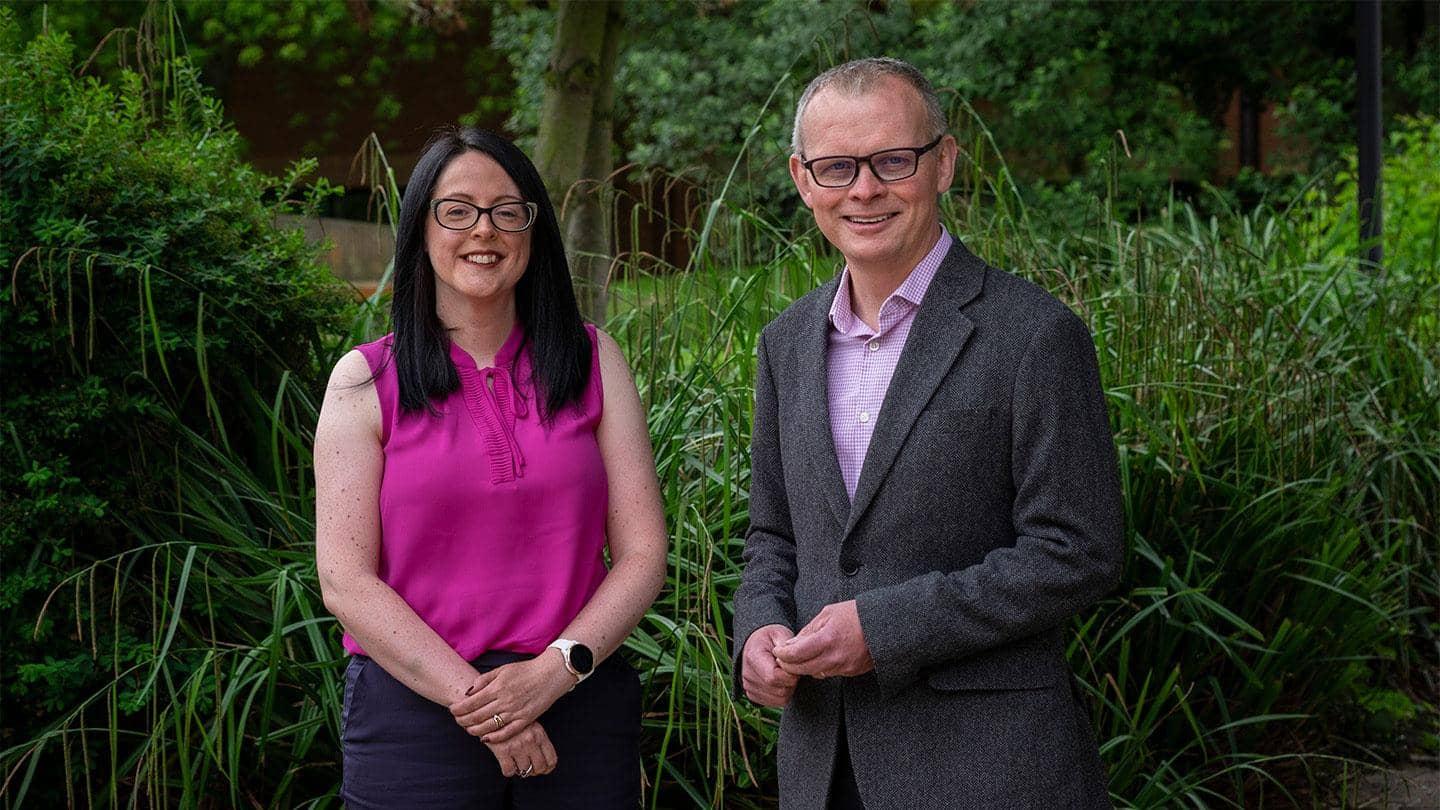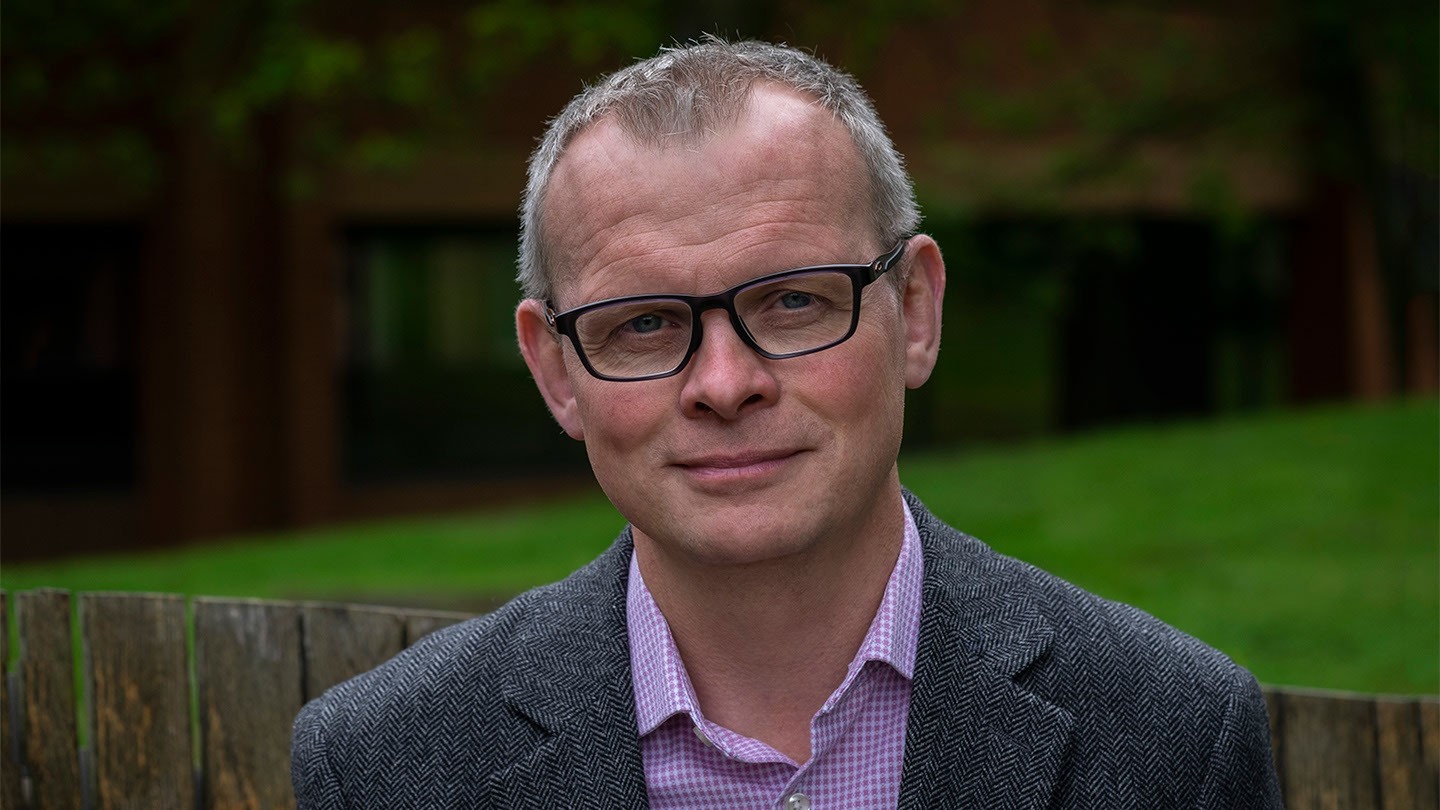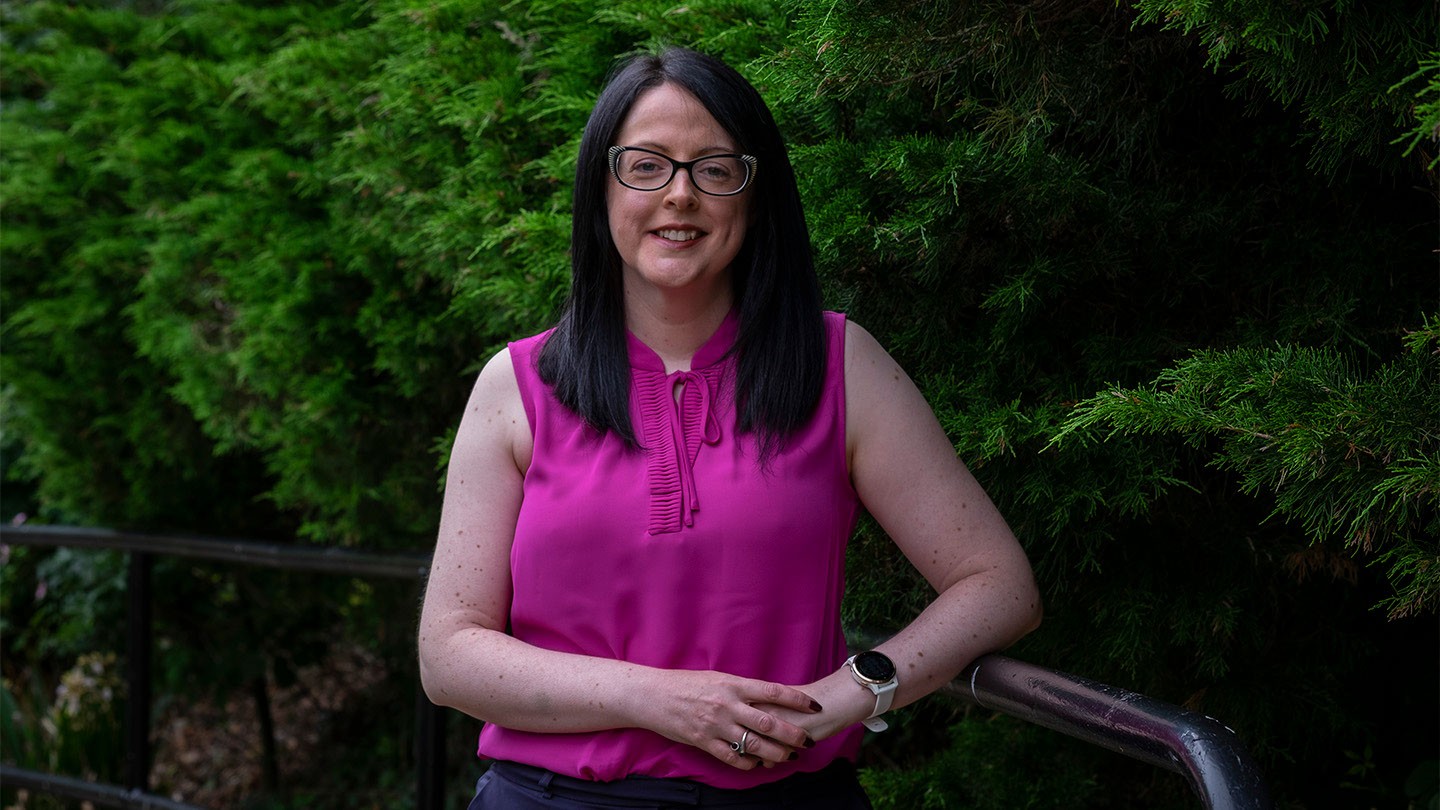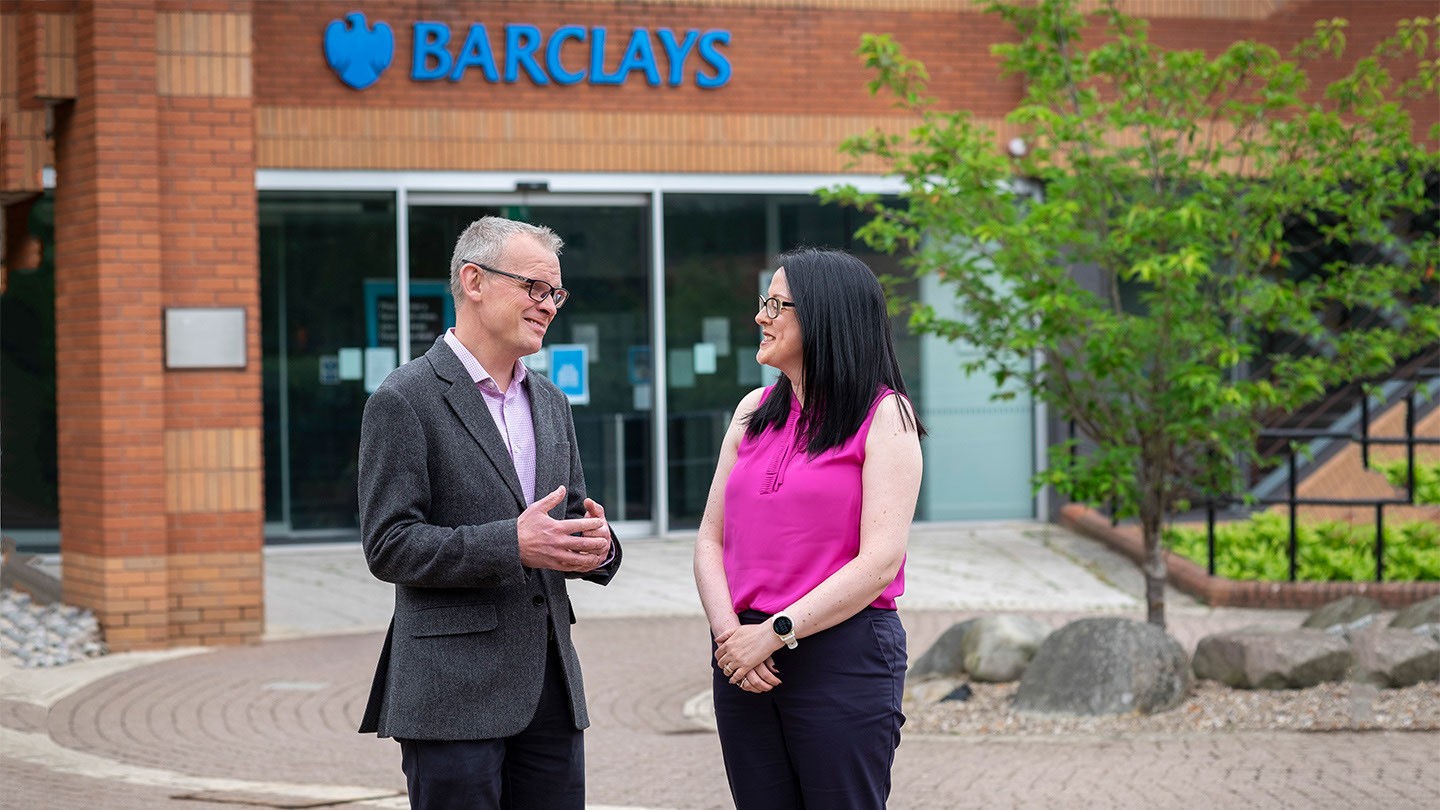
Culture
“We want people to consider accessibility in everything they do”
Matt Robinson and Liz Bailey, the former and current Co-Chairs of Barclays’ Reach network, on how the bank’s disability, mental health and neurodiversity network has encouraged conversations, shared stories – and improved colleagues’ working lives.
“For too long, the thinking around disability has focused on physical imagery. Yet for many of our colleagues, the conditions they identify with are non-visible. This makes the conversation more difficult to begin, and prevents many people from feeling able to share their stories.”
Matt Robinson is the outgoing Co-Chair of Reach – the Barclays network that focuses on disability, mental health and neurodiversity inclusion. He is reflecting on the way he and Co-Chair Liz Bailey have worked hard over the last few years to foster a more inclusive environment for colleagues with disabilities – as well as to challenge preconceptions about disabilities, expanding the network to encompass mental health and neurodiversity.
Bailey agrees: “We want to make sure that all mental health conditions are actually talked about – including the ones you don’t hear about as often, like bipolar, schizophrenia and obsessive-compulsive disorders. A year ago, we did a similar thing with neurodiversity. And that has really taken off; there’s a massive appetite for discussions around neurodiversity now, because many more adults are being diagnosed.”
Like any diversity inclusion network, our ultimate aim is to change people’s thinking to such a degree that we’re no longer needed.
Customer Vulnerability and Mental Health, Retail Segment at Barclays

Matt Robinson Co-Chaired the Reach network for four years.
Why shared stories matter
Bailey and Robinson say it’s crucial to have these conversations so that appropriate changes to the workplace can be made. “These adjustments allow colleagues not just to survive, but to thrive in their working environments and in their careers,” says Robinson. “If their stories are not shared with line managers and colleagues, it becomes much harder to improve working lives.”
“So, everything we do within Reach is about that,” adds Bailey. “We bring in senior leaders, too, because hearing them share their personal experiences is very powerful.”
Both Robinson and Bailey understand the balance between sharing your story and, at the same time, not being defined by it. Bailey, who is Data Analytics Director in the Chief Controls Office, lives with a number of conditions, “all of which contribute to making me who I am”.
She continues: “In a very positive way, they’ve shaped how I approach life and how I interact with others. However, my conditions don’t fully define me. I’m also a keen runner, homemaker, wife and mother, and at work I’m known for my authenticity and logical approach to problem-solving.”

Liz Bailey is Co-Chair of Barclays’ Reach network.
We don’t want people to be ‘silent advocates’ – we want them to actively challenge ableism in the workplace.
Director, Chief Controls Office at Barclays
Meanwhile, Robinson, who is a Senior Propositions Manager, joined Reach because of his daughter, Lucy, who he describes as a lively, sport-loving 14-year-old with a great bunch of school-friends and a passion for life. Lucy also has Down’s syndrome. Robinson and his wife have always focused on what their daughter is able to do, and why having Down’s syndrome is not the thing that defines her.
“This way of thinking lies at the very heart of ‘This is me’ which began in 2013” says Robinson, referring to the Reach storytelling campaign that encourages colleagues to share their experiences with disability, mental health and neurodiversity. “It is fundamentally the single most powerful way of us, as a network, bringing to life what we’re here to try and do.
“So when anyone shares their story, we encourage them to do it in a certain way – which is to talk about you, your family, where you live, your personal life and your working life, before describing the condition you identify with.
Actively challenging ableism in the workplace
Looking back on his four years helping to lead the network, Robinson’s says his highlights include expanding Reach’s focus beyond London, which involved encouraging ‘chapter teams’ to run network-wide events from non-London sites. “We’re not quite there yet,” he admits, “but we’ve made significant improvements”.
Robinson is also very proud of Reach’s army of ‘purple champions’. “People want to support the network but many felt that joining wasn’t relevant to them, so the notion of advocacy came up,” he explains. “With purple being the colour of disability, we launched our ‘purple champions’ three or four years ago, to support network members and raise awareness of Reach among their colleagues and in local team meetings.”
For many of our colleagues, the conditions they identify with are non-visible.
Customer Vulnerability and Mental Health, Retail Segment at Barclays

The Reach network puts disability inclusivity at the heart of Barclays.
“We don’t want people to be ‘silent advocates’,” agrees Bailey. “We want them to consider inclusivity accessibility in everything they do, and to actively challenge ableism in the workplace.”
Another successful initiative involved establishing peer support groups during the pandemic. “Before COVID-19, creating a safe environment where colleagues could talk openly about what they’re feeling and experiencing – particularly in terms of mental health – had been very powerful,” says Robinson. “We found a way for colleagues to still access that support from home, while making sure it sat alongside the more formal care provision colleagues can expect from Barclays. The mental health peer support groups are now a really important part of our toolkit.”
Reach’s mentoring scheme also continues to break new ground, and last month received a highly commended award in Barclays’ Citizenship and Diversity Awards. The two-way programme partners a senior leader with a more junior colleague who identifies as having a disability, mental health or neurodiverse condition. It’s a unique opportunity for senior leaders to learn and understand what it’s like to live with a particular condition, and the impact that it can have in the workplace.
And Robinson adds that getting involved in the network has actually changed the course of his own career. Three years ago, he left the technical strategy team at Barclaycard and took on an inspiring new role in Customer Vulnerability and Mental Health within Barclays’ retail environment. “It was only my volunteering work in Reach that qualified me to apply for my current role,” he says.
Now, part of his role is focused on leading the bank’s change agenda, by providing product and process support for customers whose disability, mental health challenges or neurodiversity have left them in vulnerable circumstances.
Making sure Reach’s ethos is built into every part of the bank will continue to be a priority. “Like any diversity inclusion network, our ultimate aim is to change people’s thinking to such a degree that we’re no longer needed,” he explains.
Looking forward, he will “still be volunteering with Reach and hope to continue developing our overall strategy, and focusing on the parts of our organisation the network is not yet fully connected with,” he says. But, he adds: “I feel that Reach is in a better place than it was when I took on the Co-Chair role four years ago, with Liz. And no one can ask for any more than that.”